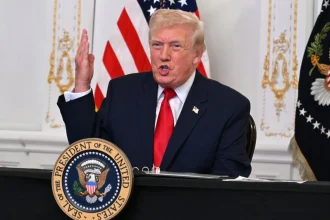Oil prices increased on Friday following comments by Russia’s Deputy Prime Minister, Alexander Novak, suggesting that the Organisation of Petroleum Exporting Countries and its allies may reconsider their plan to raise oil output after April.
Despite the rise, oil prices remained on track for a weekly decline of more than 3 per cent due to concerns about the United States’ tariff policies.
Brent crude, Nigeria’s oil price benchmark, went up by 99 cents, or 1.4 per cent, reaching $70.45 per barrel, while US West Texas Intermediate futures rose by 93 cents, or 1.4 per cent, to $67.29.
This increase sends mixed signals for Nigeria. Higher oil prices could boost government revenue, but it might also mean higher petrol prices for Nigerians.
On the other hand, lower international oil prices could reduce fuel costs locally but might also affect the government’s earnings.
During Friday’s trading session, Brent briefly hit $70.76, while WTI peaked at $67.68 after Novak revealed that OPEC+ would go ahead with its planned output increase in April but might adjust its strategy afterward.
“When examining the global oil balance, OPEC+ must have deemed in its assessment that the oil market could absorb extra barrels without causing prices to fall sharply … so far, it seems the price action has proved them wrong,” Novak said.
Brent recorded a 3.8 per cent drop for the week, its biggest weekly fall since November last year. WTI also saw a 3.6 per cent decline, marking its largest weekly drop since January.
A Reuters report explained that Novak’s remarks highlight OPEC+’s readiness to change its plans based on “market conditions,” showing that future output increases depend on how the market reacts.
Earlier in the week, Brent prices fell to their lowest levels since December 2021 after US crude inventories grew and OPEC+ confirmed its decision to boost output quotas.
Novak clarified that the group’s decision to increase production in April by 138,000 barrels per day would only proceed if the market could handle the additional supply without disrupting stability.
Adding to market concerns, US Treasury Secretary Scott Bessent hinted at efforts to further cut Iranian crude exports. Reports revealed that the US government is considering inspecting Iranian oil tankers at sea to curb their oil sales.
Meanwhile, US President Donald Trump recently suspended 25 per cent tariffs on most Canadian and Mexican goods until April 2, though tariffs on steel and aluminium are set to take effect on March 12.
Given the uncertainty in global oil prices, Nigeria faces pressure to ramp up crude production to meet its 2.06 million barrels per day target, a crucial part of funding its N55 trillion 2025 budget.











